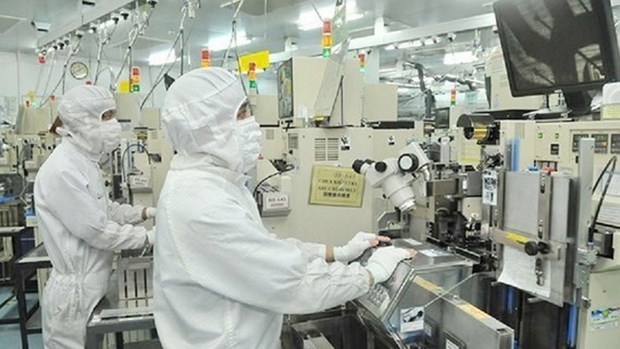Vietnam will continue to be prime destination for FDI: VinaCapital
The global corporate minimum tax is unlikely to impede Vietnam’s FDI inflows given the fact that tax incentives are not the primary attraction for setting up a factory in Vietnam, Michael Kokalari, chief economist at investment fund VinaCapital, said.

In his latest analysis, he said FDI had been one of Vietnam’s most important economic growth drivers over the last decade. The country had significantly outperformed its regional peers in attracting FDI since the US-China trade war emerged, but there were two potential risks to its future FDI inflows.
Firstly, Vietnam could be losing its competitiveness as an FDI destination versus India, Malaysia and/or Indonesia, and secondly, a new global corporate minimum tax scheme would reduce Vietnam’s relative attractiveness as an FDI destination by limiting the tax incentives offered to prospective investors.
According to Kokalari FDI companies that invest in Vietnam typically enjoy tax breaks that may include a zero per cent tax rate during the initial years of their operations, followed by a gradual increase up to a full 20% corporate income tax rate over a period as long as 10 years.
In 2021, over 100 countries (including Vietnam) agreed to an OECD proposal for a global corporate minimum tax (GMT) that would impose a 15% minimum corporate tax rate on income for companies with consolidated incomes above circa US$850 million starting from 2023. The implementation of this agreement was subsequently delayed to 2024, and it is not clear yet whether the US, China, and India will participate in the scheme.
Vietnam has been preparing for the implementation of the new GMT system next year, and it has been reported that around 70 companies in the country could see their tax rates rise if it is imposed. Some of Vietnam’s regional emerging market peers are reportedly investigating alternative schemes in which some of the additional tax revenues would be channelled into a “business support fund” that would effectively offset companies’ higher tax burdens by subsidising some of those firms’ production costs (for example, with subsidized electricity prices, spending on the construction of a new factory, worker housing, etc.).
More importantly, low tax rates are far from the most important factor in a company’s decision about where to establish a new factory, according to surveys from the World Bank and others. Considerations such as political stability, ease-of-doing-business, workforce (quality and wages), and physical infrastructure are all more important factors.
“The new GMT is unlikely to impede Vietnam’s FDI inflows given the fact that tax incentives are not the primary attraction for setting up a factory in Vietnam, and it seems likely that workarounds to the GMT are likely to be put in place, if-and-when the scheme is actually implemented,” he said.
Regarding concern about Vietnam’s continued competitive advantage amid growing interest in India from firms such as Apple and others, he said, “We are not overly concerned that India will affect FDI that would have otherwise poured into Vietnam for any number of reasons.”
“Tim Cook’s visit to India in April spawned a plethora of articles on the intentions of Apple and others to build new factories in the country. But it is important to note that most of the products produced in those factories will be sold into the Indian market. In short, new investments to India are not being motivated by the “China + 1” investment strategy that drove FDI inflows into Vietnam over the last decade, particularly at an accelerated pace since the start of the US-China trade war,” he said.
Some observers have also noted that planned FDI into Malaysia and Indonesia surged during the last two years, while Vietnam’s registered FDI was essentially flat. However, investments into Malaysia and Indonesia were largely channelled into the production of goods Vietnam does not make, including electric vehicle batteries.
Kokalari said Vietnam had attracted far more than its “fair” share of FDI since the US-China trade war emerged in 2018, so some of its regional competitors for FDI inflows are now experiencing some “catch up” investments after having lagged Vietnam in recent years.
“We fully believe that Vietnam will continue to be a prime destination for FDI, particularly from multinationals looking to produce for export and seeking an alternative and/or additional manufacturing base to China, for the foreseeable future,” he said.

